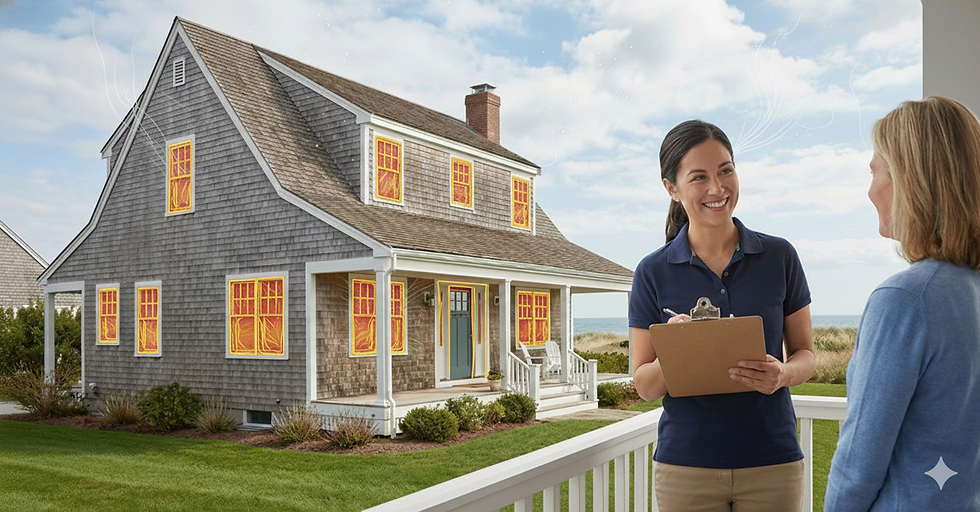The Cape Cod Tax Advantage: Why Property Taxes Remain Favorable
- Sarah Keith

- Mar 15, 2025
- 2 min read
Updated: Dec 15, 2025
The Cape Cod Tax Advantage: Why Property Taxes Remain Favorable
Cape Cod is known for its beautiful coastal homes, charming villages, and—surprisingly—relatively low property tax rates compared to other parts of Massachusetts. But why are taxes here so reasonable?

What Keeps Cape Cod’s Taxes in Check?
High Percentage of Second Homes
Many properties on Cape Cod are second homes, often luxurious retreats owned by seasonal residents or retirees. These homeowners contribute significantly to the tax base through high assessed values—think multimillion-dollar waterfront estates—while relying minimally on municipal services like schools. With fewer year-round families enrolling children, school budgets (a major tax driver) remain lower, allowing towns to maintain modest tax rates without sacrificing quality of life.
Tourism & Alternative Revenue Streams
Cape Cod benefits from a thriving tourism industry, generating revenue through hotel taxes, short-term rental fees from those luxury second homes, and seasonal businesses. This influx of funds offsets property tax needs, reducing the burden on homeowners and keeping rates favorable.
Conservation Land & Smart Development
Large portions of Cape Cod are protected conservation areas, limiting overdevelopment and the need for costly infrastructure projects like new roads or utilities. This restraint supports high property values for luxury homes within a limited supply, boosting tax revenue without necessitating higher rates.
Fiscal Responsibility in Town Budgets
Many Cape towns operate with lean budgets, leveraging the steady revenue from high-value second homes to fund essential services efficiently. This fiscal discipline ensures tax rates remain manageable while maintaining the high quality of life residents expect.
How Does Cape Cod Compare?
While Cape Cod towns vary, many remain below the state average tax rate. Compare this to urban areas like Boston ($10.74 per $1,000) or Newton ($9.75 per $1,000), where full-time residents and higher service demands (like schools) drive up costs. On Cape Cod, a $2 million home in Chatham taxed at $3.57 per $1,000 yields $7,140 annually with little impact on local schools, versus over $19,000 in Boston with far greater service demands. It’s clear why Cape Cod is an attractive option for homebuyers.
What This Means for Homeowners
Lower property taxes make homeownership more affordable, especially for luxury buyers seeking second homes.
Tax savings can enhance investment potential, making Cape Cod an appealing market for seasonal properties with strong rental income prospects.
The stable, relatively low tax rates contribute to long-term property value retention, bolstered by high demand and constrained supply.
Cape Cod remains one of the most desirable places to live, with a tax structure that makes ownership even more appealing. If you’re looking for a luxury home in Brewster, Chatham, Dennis, Eastham, Harwich, Orleans, Truro, Wellfleet, or Yarmouth, let Cape Cod Bliss guide you to the perfect property.
For the latest market updates and expert real estate insights, contact Cape Cod Bliss today!
Here are the 2025 Cape Cod Property Tax Rates by Town
Here are the Latest Town Single-Family Home Market Stats
Sarah Keith | Realtor® at Cape Cod Bliss brokered by eXp Realty Phone: 508-237-4745 | Email: sarah@capecodbliss.com
Office Address: 60 Munson Meeting Way, Unit J, Chatham, MA 02633
Licensed in Massachusetts: License # 9557311
We are an Equal Housing Opportunity brokerage. Information deemed reliable but not guaranteed.



Comments